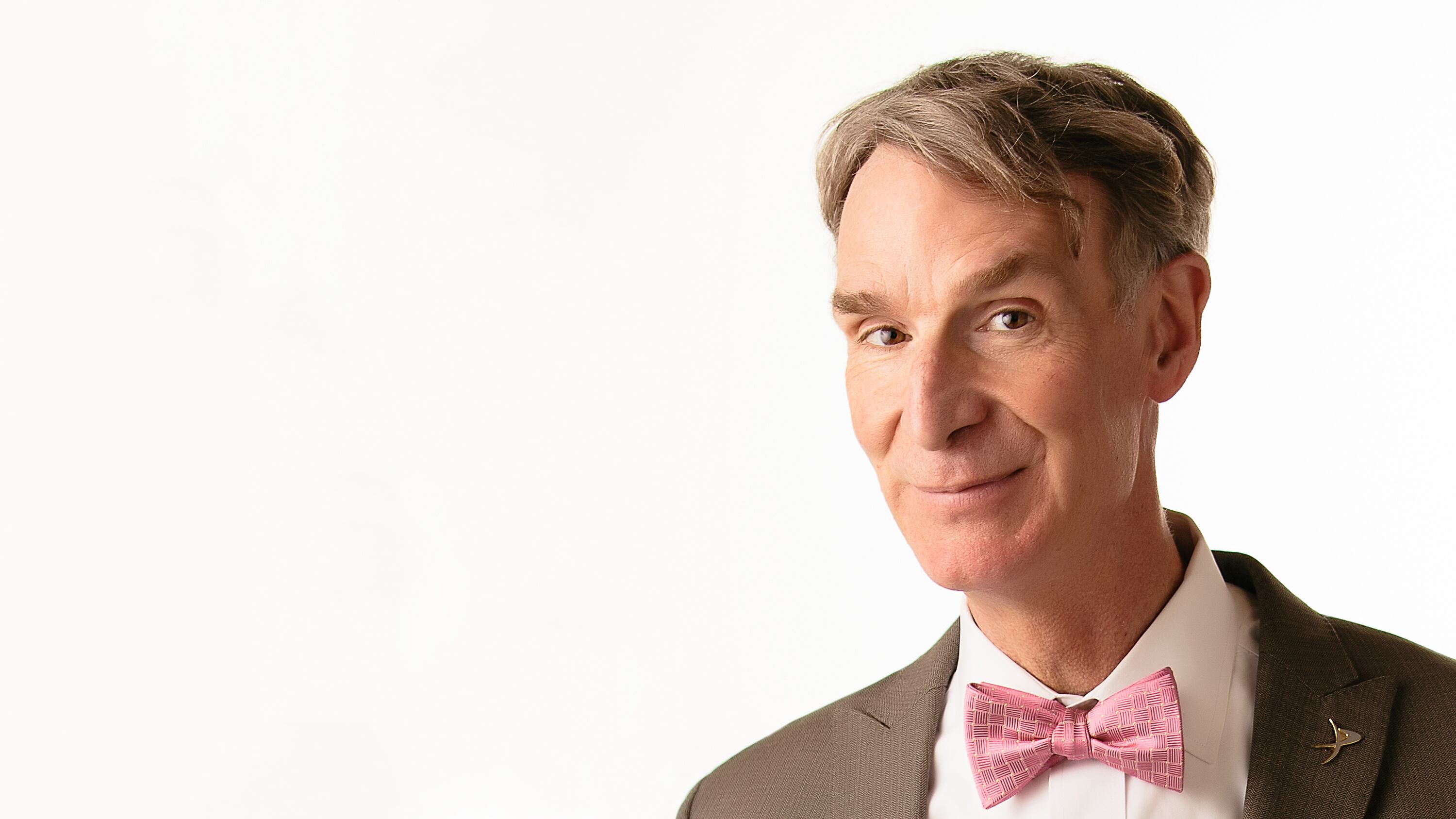Renowned scientist, television star, superhero—that's Bill Nye, and he's coming to save Portland.
Though Portlanders may not be the first city you'd think would need to be convinced about the existential threat of climate change, it doesn't hurt to see if our environmentalist standards could extend beyond driving a Prius or shopping at New Seasons.
Now, more than ever, young people are a catalyst for change. And as Nye explained in a brief interview ahead of his speaking engagement at the Schnitz on May 18, that change is needed ASAP.
Willamette Week: In Portland, you will be discussing climate change. In a liberal, environmentally-conscious city like Portland, where most people believe in climate change, how do you keep from just preaching to the choir?
Bill Nye: Climate change isn't something you can believe in or not believe in. It's as the saying goes—it's physics. And so what we want to do is get people excited about doing something about it. There's a tendency in Portlandia to be negatively judgemental of those who do not want to address climate change and to be critical of people that have lifestyles that may strike certain Portlandians as not "politically correct" or not appropriate for the health of the globe and so on. But my message is more inclusive, I think—or that's my goal. It's not just preaching to the choir, it's what to do about it.
You'll also be talking about the eruption of Mt. St. Helens. Why is that important?
So Hawaii—have you ever been there? Have you ever been to the volcano national monument? It's cool. These are volcanoes and they're amazing inside. And the Hawaiian volcanoes are quite different. It's oozing hot lava and it's spectacular and there's no stopping it. You can pass legislation to stop eruptions, but that's generally ineffective. And Mt. St. Helens is phreatic—a fabulous word. It's a steam explosion. What made Mt. St. Helens explode so explosively is this freaking water deep within it. Back in the day, people were speculating whether or not it was going to erupt at all, and it erupted in a spectacular fashion—a fashion that a lot of people didn't anticipate.
The other amazing thing is how fast the ecosystem has recovered. You know, 38 years is a long time, but it's not that long. In a geologic sense, it's nothing. It's a blink of an eye. And yet, all these plants and animals have returned to the landscape. Have you heard about the insect rain? It's this crazy thing. So you are a beetle, you're a fly, you're a mosquito—you're somebody like this, and you've lived your life and now you're dead. And the way the wind comes through the valley it blows all the insects up the slope. So then you get this source of nitrogen in the soil from the insect corpses that started these plants growing. They return nitrogen to the soil, they can thrive. And then all these scrub oak plants start growing and then animals come to eat the nuts, and then animals come to eat the animals who eat the nuts and so on. And it just happened surprisingly fast. You know when that thing first went off the devastation was so large it looked like humans had done it. It looked like humans had shown up to build a shopping mall or something. That's how big the devastation was, but it was natural. The earth's going to be here no matter what we do. We don't want to save the earth for the earth's sake. We want to save the earth for us.
Have you ever run into climate change deniers at these events? If so, how do you deal with them?
In Portland, not so much, but yeah I run into climate change deniers—or contrarians—continually. So I say, "What makes you so sure that everyone in the world except you is wrong?" I offer guys like Joe Bastardi and Marc Morano—these are Fox News contrarians—I offered them each two $10,000 bets. I offered [meteorologist] Joe Bastardi $10,000 that 2016 would be among the top 10 hottest years in history. Then I offered him another bet—that 2010-2020 would be the hottest decade recorded. Neither one of those guys would take it, either bet. So I was willing to put $40,000 on the table, of my own coin. So you can speculate as to why they wouldn't take the bet, but I think it has to do with they actually know what's actually going on. They're funded by the actual fossil fuel industry and they've sort of lost their way. And it's the fossil fuel industry that's caused the trouble. They've been very successful in introducing the idea that scientific uncertainty, plus or minus 2 percent, is the same as plus or minus 100 percent. And that's wrong.
I think about Parkland, Fla., and Stoneman Douglas High School. I mean, its tragedy. It's horrible that people got killed. But when people of that cohort, as we say in demographics, are of age and outnumbering people like me in voting, things are going to change it 10 minutes. I think two, or let's go three, presidential election cycles, climate change will be addressed, gun safety will be addressed, tax policies will change, management of the federal debt will be addressed and you guys are gonna get 'er done.
As one of the few celebrity scientists in mainstream media, do you feel burdened with extra responsibility when it comes to educating people and "saving the planet"?
Saving the planet for us, yeah, I feel responsibility. The whole thing started when I was working as a mechanical engineer and the US decided to no longer require the teaching of the metric system and started rolling back regulations on gas standards just as the Middle East oil cartel, OPEC, decided to raise the limit of oil production so that gas prices would go up for political ends to gain influence. We're still fighting that fight. People have been fighting in the Middle East for a millennia, and now we're fighting over oil as well as this theology. I wrote my first kids book in 1993, and in there, there was a demonstration on greenhouse gases and the effect on the environment and the earth's climate. and they've hardly done anything about it in these [last] 25 years. So I wouldn't call it a burden, it's a mission. It's a reason to get up in the morning. Because we're reaching the tipping point, and the tipping point I'm talking about is political.
Your show, Bill Nye Saves the World, is back on to Netflix for its third season. How can we help you save the world?
There are three things we want for everybody—clean water, renewable and reliable electricity, and access to the internet. This means establishing policies and regulations that enable those three things, which means investing in technology, investing in training and opportunities for people who feel they might have been excluded. We want to get everybody included so that we can have a better tomorrow for everyone. So take this for example—you can show that there's enough solar and wind power in virtually every country on earth to run the whole place right now renewably if you just wanted to. There may be promise with nuclear power, but the political problems associated with it, especially in the US, are just frustrating and troubling. We'll make it a goal to make renewable and reliable electricity. And then to provide internet to people, we are almost certainly going to need satellites. They're called "space assets"—this means investments in space technologies. And people are doing it, people are spending money like crazy because everybody sees the value in it. So what we need are satellites with a low enough altitude where the communication time is quick. So the idea is that by providing internet service to everyone you can provide education to everyone. The big focus—the big, big, big, idea—is to raise the standard of living in girls and women. When girls and women are educated they have fewer kids and the kids they have are better educated, and they have more resources and they do better and everybody does better. So let's go. Let's get to work.
SEE IT: An Evening with Bill Nye is at Arlene Schnitzer Concert Hall, 1037 SW Broadway, on Friday, May 18. 7:30 pm. $40-$150. All ages. Get tickets here.

